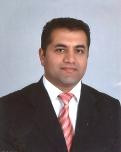Makaleler
Sayı Editör Kurulu


Sayı Hakemleri
 0000-0001-7789-5461
0000-0001-7789-5461


 0000-0001-7389-5923
0000-0001-7389-5923



 0000-0002-5250-3369
0000-0002-5250-3369

 0000-0002-9361-4495
0000-0002-9361-4495


 0000-0002-7349-0739
0000-0002-7349-0739





Amaç ve Kapsam
Ekonomi, Politika & Finans Araştırmaları Dergisi, akademisyenler ve araştırmacılar tarafından ekonomi, finans ve ekonomi politikası alanlarında yapılan bilimsel nitelikli çalışmaların yayınlanabileceği bir platform oluşturmayı amaçlamaktadır.
Ekonomi, Politika & Finans Araştırmaları Dergisi’nde, ekonomi, finans ve ekonomi politikası alanları kapsamındaki özgün ve bilimsel çalışmalar yayımlanabilir. 26.04.2022 tarihinden itibaren uluslararası ilişkiler ve siyaset bilimi alanındaki makaleler dergi kapsamından çıkarılmıştır. Daha önce yüklenen makalelerin süreci devam edecektir.
Yazım Kuralları
Makalelerin Örnek Makale Şablonu kullanılarak hazırlanması zorunludur. AKSİ TAKTİRDE DEĞERLENDİRMEYE ALINMAYACAKTIR.
Makale gönderilirken yüklenmesi gereken dosyaları aşağıdaki bağlantıları kullanarak indirebilirsiniz.
Etik Kurul İznine ve/veya Yasal/Özel İzne Gerek Olmadığına Dair Beyan Formu veya etik kurul izni gerekiyorsa etik kurul izni alındığına dair belge.
Araştırmacı Katkı Oranı ve Çıkar Çatışması Beyan Formu
Tam Metin dosyasında, yazar bilgilerine yer verilmemelidir. Kapak Sayfasında sadece başlık, özetler ve yazar bilgileri yer almalıdır.
Dergiye gönderilen makaleler
aşağıdaki kıstaslara göre hazırlanmalıdır:
1. Makaleler Microsoft Word kullanılarak, Times New Roman, 11 punto, iki yana yaslı ve 1,15 satır aralığı bırakılarak yazılmalıdır. Paragraflarda 1 cm girinti yapılmalı, paragraflardan önce “6 nk” aralık bırakılmalıdır.
2. Sayfa kenar boşlukları (sağ, sol, üst ve alt) 3 cm olmalıdır.
3. Giriş ve sonuç bölümleri dahil metin içinde yer alacak ana ve alt başlıklar ilk harfleri büyük diğerleri küçük, bold ve numaralandırılarak (örneğin 1., 1.1., 1.1.1.) yazılmalıdır. Başlıklardan önce 1 satır boşluk bırakılmalıdır.
4. Türkçe ve İngilizce özetler tek satır aralığında 10 punto ile yazılmalıdır ve 150-200 kelime aralığında olmalıdır. "Öz" ve "Abstract" başlıkları 11 punto ile yazılmalıdır.
5. Makaleyi tanımlayan en az üç adet Türkçe ve İngilizce anahtar kelime belirlenmeli ve makaleye uygun JEL sınıflama numaraları verilmelidir. (https://www.aeaweb.org/econlit/jelCodes.php?view=jel)
6. Yazar(lar)ın soyadlarının sonunda dipnot vermek suretiyle, sırasıyla unvan, çalıştığı kurum, e-mail ve ORCID bilgileri yazılmalıdır. İstenirse iletişimden sorumlu yazarın kim olduğu belirtilebilir.
7. Dipnotlar Times New Roman, 10 punto ve tek satır aralığı ile yazılmalıdır.
8. Denklem ve formüller resim formatında olmamalı, sayfaya ortalanarak verilmeli ve numaralandırılmalıdır. Denklem ve formüllerin numaraları parantez içinde ve sağa dayalı olarak yazılmalıdır.
9. Tablo, grafik ve şekiller metin içerisinde yer almalı, numaralandırılmalı ve sayfaya ortalanarak yerleştirilmelidir. Tablolar resim formatında olmamalıdır. Tablolar 10 punto, tek satır aralığı ve satırlar arası aralık bırakılmayacak şekilde hazırlanmalıdır. Başlıklar sola dayalı olarak, bold, 10 punto ve ilk harfleri büyük olacak şekilde yazılmalıdır. Başlıklar, tabloların üstünde, şekiller ve grafiklerin ise altında olmalıdır. Tablo, grafik ve şekillerin kaynağı, tablo, grafik ve şekillerin altında 10 punto ve tek satır aralığı ile yazılmalıdır.
10. Makalenin ilk sayfasında, sırasıyla makalenin Türkçe başlığı, yazar(lar)ın adı ve soyadı (dipnotta verilecek gerekli bilgiler –Madde 7), Türkçe özet, Türkçe anahtar kelimeler, jel sınıflandırmaları, İngilizce başlık, İngilizce özet, İngilizce anahtar kelimeler ve jel sınıflandırmaları yazılmalıdır.
11. Giriş bölümü 2. sayfadan başlamalıdır.
12. Değerlendirilmek üzere gönderilen makale DergiPark sistemine tek bir word dosyası olarak yüklenmelidir.
13. Kaynaklara yapılan atıflar, dipnot yerine metin içinde gösterilmelidir. Metin içinde yapılan her atıfa ait kaynak, kaynakçada mutlaka yer almalıdır. Metin içinde atıf yapılmayan eserlere kaynakçada yer verilmemelidir. Açıklamalar dipnot biçiminde numaralandırılarak ilgili sayfanın altında verilmelidir.
14. Kaynakçada yer alan kaynaklar yazarların soyadına göre alfabetik olarak sıralanmalıdır. Kaynaklar, 10 punto, tek satır aralığı, paragraflar arası “6nk” aralık bırakılarak yazılmalıdır.
15. Metin içinde atıf yapma ve kaynakça yazım kurallarına mutlaka uyulmalıdır. Metin içinde atıf yapma ve kaynakça yazım kurallarına bu bağlantıyı tıklayarak ulaşabilirsiniz.
16. Sadece Türkçe çalışmalar için makalenin kaynakçasının sonuna 500-750 kelime arasında İngilizce genişletilmiş özet yazılması gerekmektedir. İngilizce çalışmalarda genişletilmiş özet istenmemektedir. Genişletilmiş özet, "Extended Summary" başlığı altında çalışmanın amacı, literatür, metodoloji, bulgular, sonuç başlıkları kullanılarak hazırlanmalıdır.
17. Kapak Sayfası, Araştırmacı Katkı Oranı ve Çıkar Çatışması Beyan Formu ve Etik Kurul İznine Gerek Olmadığına Dair Beyan Formu (etik kurul izni ve/veya yasal/özel izin gereken bir çalışma ise ilgili izne ilişkin belge) yüklenmediği takdirde hakem değerlendirme süreci başlatılmamaktadır. Çalışma tek yazarlı olsa bile Araştırmacı Katkı Oranı ve Çıkar Çatışması Beyan formunun yüklenmesi gerekmektedir.
18. Makalenin sonuç bölümünün sonunda Araştırma ve Yayın Etiği Beyanı, Araştırmacıların Katkı Oranı Beyanı ve Araştırmacıların Çatışma Beyanı ve varsa Destek ve Teşekkür Beyanına yer verilmelidir. Beyanların makalede nasıl sunulacağı "Örnek Makale Şablonunda" yer almaktadır.
19 Makalelerde araştırma ve yayın etiğine uyulduğu ve etik kurul izni ve/veya yasal/özel izin alınmasının gerekip gerekmediği Araştırma ve Yayın Etiği Beyanında belirtilmiş olmalıdır. Etik kurul izni gerektiren çalışmalarda, izinle ilgili bilgiler (izinin hangi kurumdan, hangi tarihte ve hangi karar veya sayı numarası ile alındığı) açıkça sunulmalı ve yöntem bölümünde ve ayrıca makalenin sonuç bölümünün sonundaki Araştırma ve Yayın Etiği Beyanında yer verilmelidir.
Etik Kurul izni gerektiren araştırmalar aşağıdaki gibidir;
• Anket, mülakat, odak grup çalışması, gözlem, deney, görüşme teknikleri kullanılarak katılımcılardan veri toplanmasını gerektiren nitel ya da nicel yaklaşımlarla yürütülen her türlü araştırmalar
• İnsan ve hayvanların (materyal/veriler dahil) deneysel ya da diğer bilimsel amaçlarla kullanılması,
• İnsanlar üzerinde yapılan klinik araştırmalar,
• Hayvanlar üzerinde yapılan araştırmalar,
• Kişisel verilerin korunması kanunu gereğince retrospektif çalışmalar,
Ayrıca;
• Olgu sunumlarında “Aydınlatılmış onam formu”nun alındığının belirtilmesi,
• Başkalarına ait ölçek, anket, fotoğrafların kullanımı için sahiplerinden izin alınması ve belirtilmesi,
• Kullanılan fikir ve sanat eserleri için telif hakları düzenlemelerine uyulduğunun belirtilmesi
Geçmiş yıllarda tamamlanmış çalışma ve tezden üretilen yayınlar için geriye dönük etik Kurul İzni alınmalı mıdır?
2020 yılı öncesi araştırma verileri kullanılmış, yüksek lisans/doktora çalışmalarından üretilmiş (makalede belirtilmelidir), bir önceki yıl dergiye yayın başvurusunda bulunulmuş, kabul edilmiş ama henüz yayımlanmamış makaleler için geriye dönük etik kurul izni gerekmemektedir.
TR Dizin’in bu kuralları ile üniversiteler dışında yapılan yayınlara kısıt mı getirilmiştir?
Hayır. Üniversite mensubu olmayan araştırmacılar da bölgelerinde bulunan Etik Kurul’lara başvurabilmektedir.
Etik İlkeler ve Yayın Politikası
YAYIN ETİĞİ*
The Journal of Research in Economics, Politics & Finance adopts the “Principles of Transparency and Best Practice in Scholarly Publishing” (published 15 September 2022) determined in collaboration with the Committee on Publication Ethics (COPE), the Directory of Open Access Journals (DOAJ), the Open Access Scholarly Publishing Association (OASPA), and the World Association of Medical Editors (WAME) that have collaborated to identify the principles of transparency and the best practice for scholarly publications.
Journal of Research in Economics, Politics & Finance adheres to the highest standards in publication ethics and adopts ethical publishing principles that are based on the guides “COPE Code of Conduct and Best Practice Guidelines for Journal Editors” and “International Standards for Editors and Authors” published by the Committee on Publication Ethics (COPE). Editors, authors and referees should comply with the publication ethics principles below.
INTERNATIONAL STANDARDS FOR AUTHORS
The research being reported should have been conducted in an ethical and responsible manner and should comply with all relevant laws and regulations. Authors should present their results clearly, honestly, without fabrication, falsification, or inappropriate data manipulation. Clear and unambiguous descriptions of the methods should be provided to allow for their findings can be confirmed by others. The submitted paper must be adhere to publication requirements that it is original, free from plagiarism, and not published elsewhere. Authors should collectively take responsibility for the submitted and published work, and the authorship should accurately reflect individuals' contributions to the research. Additionally, funding sources and relevant conflicts of interest must be disclosed.
Soundness and Reliability
The research should have been conducted in an ethical and responsible practices and follow all relevant legislation. It should be conducted soundly and with precision. Researchers should employ appropriate data analysis and display methods, seeking specialist advice if necessary. Authors must take collective responsibility for their work and for their work and publications. Authors should diligently review their publications at all stages to ensure accurate reporting of methods and findings. Authors should thoroughly check calculations, data presentations, typescripts/submissions, and proofs.
Honesty
Authors must report their results honestly, without fabrication, falsification, or inappropriate data manipulation. During the review process of the manuscripts, raw data may be requested from the authors. Therefore, authors should be ready to submit such data to the editorial board. Images used in research, such as micrographs, X-rays, or pictures of electrophoresis gels, should not be misleadingly altered. Authors should strive to describe their methods and to present their findings clearly and unambiguously. Authors should follow applicable reporting guidelines. Sufficient details should be provided in publications to enable experiments to be repeated by other researchers. Reports of research should be complete. Reports of research should not omit inconvenient, inconsistent or inexplicable findings or results that do not support the authors’ or sponsors’ hypothesis or interpretation. Research funders and sponsors should not have the authority to veto the publication of findings that do not align with their interests. Researchers should not agree to contracts that allow the research sponsor to control or veto the publication of results, except in exceptional cases such as government-classified research due to security implications. If authors discover errors in their submitted, accepted, or published work, they should promptly inform the editor and cooperate in issuing corrections or retractions as necessary. When citing the work of others, authors should represent it accurately in citations and quotations. Authors should not copy references from other papers if they have not read the cited work.
Balance
Authors should present their new findings in the context of previous research. The work of others should be represented fairly and accurately. Scholarly reviews and syntheses of existing research should be complete and balanced, including findings regardless of whether they support the proposed hypothesis or interpretation. Editorials or opinion pieces expressing a singular viewpoint or argument should be clearly differentiated from scholarly reviews. Limitations of the study should be addressed in publications.
Originality
Submitted works should be original and has not been previously published in any language. Paper should not be submitted concurrently to more than one publication. They should follow applicable copyright laws and conventions. Copyright material, such as tables, figures, or extensive quotations should be reproduced only with appropriate permission acknowledgment. Relevant previous work and papers, both by other researchers and the authors’ own, should be properly acknowledged and referenced. The primary literature should be cited where possible. Data, text, figures or ideas originated by other authors should be properly acknowledged and these should not be presented as if they were the authors’ own. Directly wording from other researchers' publications should be indicated with quotation marks and the appropriate citations. If findings have been published previously or if multiple reports or multiple analyses of a single data set are under consideration for publication elsewhere, authors should inform editors. Authors should provide copies of related publications or submissions to other journals. In cases where multiple publications generate from a single research project, they should be clearly identified as such, and the primary publication should be referenced. Translations and adaptations for different audiences should be clearly identified as such, giving acknowledge to the original source and adhering to relevant copyright conventions and permissions requirements. Authors should seek permission from the original publisher before republishing any work if there are any doubts about copyright compliance.
Transparency
Authors should be disclose that all sources of research funding, encompassing both direct and indirect financial support, supply of equipment or materials, and other support such as specialist statistical or writing assistance. The role of the research funder(s) or sponsor, if applicable, in the research design, execution, analysis, interpretation, and reporting should be explicitly disclosed. Furthermore, authors should disclose relevant financial and non-financial interests and relationships that might influence the interpretation of their findings or which editors, reviewers, or readers may reasonably want to know. Authors are expected to follow journal and institutional requirements for disclosing competing interests.
Appropriate Authorship and Acknowledgment
The authorship of research publications should accurately represent individuals’ contributions to the work and its reporting. Major contributors should be listed as authors, while who made less substantial or purely technical contributions to the research or publication should be listed in the acknowledgments section, In these cases, the criteria for authorship and acknowledgment should be decided at the beginning of the project. Researchers must ensure that only those individuals who meet the criteria for authorship (i.e. made a substantial contributions to the work) are rewarded as authors, and deserving authors are not omitted. Journal editors do not accept guest authorship, gift authorship, and ghost authorship (Guest authors are those who do not meet accepted authorship criteria but are listed because of their seniority, reputation, or supposed influence. Gift authors are those who do not meet accepted authorship criteria but are listed as a personal favor or in return for payment. Ghost authors are those who meet authorship criteria but are not listed.). Journal editors cannot be expected to adjudicate in authorship disputes. Authors themselves, working under guided by their institution, bear the responsibility for the accurately attributing authorship.All authors must approve any changes to the author list, including those who have been removed from the list.
The corresponding author should serve as the main point of contact between the editor and the other authors, keeping co-authors informed and involving them in major decisions regarding the publication, such as responding to reviewers' comments. Authors should not use acknowledgments misleadingly to imply a contribution or endorsement by individuals who have not, in fact, been involved with the work or given an consent.
Authors are required to sign and submit the "Declaration Form of Author Contribution Statement and Conflicting Interests." Additionally, they should include the "Research's Contribution Rate and Statement" at the conclusion section of the article as specified in the Publication Policy and Author Guideline pages of the journal.
Accountability and Responsibility
All authors should have read and be familiar with the paper and should ensure that publications follow the research and ethical principles. In general, authors are jointly responsible for the integrity of the research and its reporting. However, if certain authors are accountable only for specific aspects of the research and it’s reporting, this should be clearly specified in the publication. If an error or omission is founded after publication, authors should work with the editor to correct it.
Adherence to Peer Review and Publication Conventions
Authors should not simultaneously submitting their work to multiple journals for consideration. If authors decide to withdraw their work from review or choose not to respond to reviewer comments after receiving a conditional acceptance, they should inform the editor. Reviewers' comments should be responded to in a professional and timely manner. Authors should not generally allow findings of their paper to be reported in the press if it has been accepted for publication but not yet published.
Responsible Reporting of Research Involving Humans
If required, ethics committee approval and/or legal/special permission should be obtained before the research begins and details should be provided in the report. “Declaration of Research and Publication Ethics” should be included at the end of the conclusion section of the article. The statement of whether an ethics committee approval and/or legal/special permission is required should be specified in the article. If required, information about the permission (board name, date, and issue number) should be included either in the method section or “Declaration of Research and Publication Ethics”. Authors should sign and submit to “Declaration Form Stating that Ethics Committee Approval is not Required” if the study does not require ethics committee approval. Authors should submit to “Ethics Committee Permission Form” if the study requires ethics committee approval. (see, the Publication Policy and Author Guideline pages of the journal).
Research Requiring Ethics Committee Permission: - Any research carried out with qualitative or quantitative approaches that require data collection from participants using survey, interview, focus group work, observation, experiment, interview techniques, - Use of humans and animals (including material/data) for experimental or other scientific purposes, - Clinical research on humans, - Researches on animals, - Retrospective studies under the law of protection of personal data. Also; - In the case of reports, it should be stated that the "Informed consent form" was taken - Obtaining and expressing permission from the owners for the use of scales, surveys, and photographs of others, - Stating that the copyright regulations are complied with for the ideas and works of art used.
As a general practice, authors should not publish or share identifiable individual data collected during the research without obtaining specific consent from the individual (or their representative). Researchers should decide on the appropriate statistical analyses at the beginning of the study and they should be prepared a data analysis plan for the prespecified outcomes and follow. Secondary or post hoc analyzes should be distinguishable from primary analyzes and those specified in the data analysis plan.
INTERNATIONAL STANDARDS FOR EDITORS
The editors of our journal have adopted to conduct processes in accordance with universal standards and good practices. They encourage authors to strive for and adhere to, the highest standards of publication ethics. They endeavor to meet the needs of readers and authors, constantly strive to improve the journal and support freedom of expression. They maintain academic records' integrity, prevent business needs from compromising intellectual and ethical standards, and don’t hesitate to publish corrections, clarifications, retractions, and apologies when necessary.
The following principles, policies and processes adopted by Journal of Research in Economic, Politics & Finance specifically aim to specifically aimed at fostering research and publication integrity.
Editorial Principles
Accountability and Responsibility for Journal Content
Editors take responsibility for everything they publish and have procedures and policies in place to ensure the quality of the material they publish and maintain the integrity of the published record.
Editorial Independence and Integrity
The journal adopts the principle of editorial independence and integrity as a requirement of its responsibility to take fair and unbiased decisions.
Separating decision-making from commercial considerations
Editors are allowed to decide on academic merit and take full responsibility for their decisions. Editors take an active interest in the publisher’s pricing policies and strive for wide and affordable accessibility of the materials they publish. Advertisements are not accepted. Except for the author fees, the journal does not have any revenue sources such as advertisements and subscriptions. In case commercial activities emerge, it is embraced that they are conducted separately from editorial processes and decisions.
Editors’ relationship to the journal publisher or owner
The principle of editorial independence is adopted in the relationship between editors and the publisher or owner. Journal publishers and owners don’t have any role in decisions on content for commercial or political reasons. Publishers can’t dismiss an editor because of any journal content unless there was gross editorial misconduct, or an independent investigation has concluded that the editor’s decision to publish was against the journal’s scholarly mission.
Journal metrics and decision-making
Editors adhere to the principle of not attempting to influence journal rankings inappropriately by artificially rising such as self-citation any journal metric. It advocates that articles should be reviewed for purely scientific reasons and that authors should not be pressured to cite certain publications for non-scientific reasons.
Editorial Confidentiality
Authors’ material
Editors cannot share information about a submitted article with anyone other than the editorial board, referees, and the publisher. Referees are also reminded of the confidentiality of authors’ materials must be protected. The editor is responsible for the confidentiality of all data and correspondence with referees submitted to the journal. Editors are not allowed to give any indication of a paper’s status with the journal to anyone other than the authors. Web-based submission systems work in accordance with preventing unauthorized access. In the case of a misconduct investigation, it may be necessary to disclose material to third parties such as an institutional investigation committee or other editors.
Reviewers
Editors protect reviewers’ identities. A double-blind peer-review process is applied, which does not allow authors and reviewers to learn each other's identities. In case of requirement regarding alleged or suspected reviewer misconduct, it may be necessary to disclose a reviewer’s name to a third party.
General Editorial Policies
Maximum Transparency and Complete and Honest Reporting
To advance knowledge in scholarly fields, it is crucial to figure out i) why particular work was done, ii) how it was planned and conducted and by whom, and iii) what it adds to current knowledge. To achieve this understanding, the editors attach importance to maximum transparency and complete and honest reporting.
Authorship and responsibility
The journal adopts COPE's standards for policy on authorship. In order to be among the authors of the article, all authors are expected to have contributed significantly to the article and to be familiar with its entire content. The author’s contribution should be stated at the end of the conclusion section of the article.
When there are undisputed changes in authorship for appropriate reasons, editors can require all authors (including any whose names are being removed from an author list) to declare their acceptance in writing. Editors do not make decisions on authorship disputes, determining who should or should not be listed as authors.
The referee processes of the articles sent by the editors of the journal, or the members of the editorial board are passed through an independent and unbiased referee process, as in other articles. If the editor has a conflict of interest with the authors of the article submitted to the journal, the process of the article is carried out by another editor in order to ensure that the article is evaluated independently and unbiased.
Conflicts of interest and role of the funding source
Authors must sign and submit to the “Declaration Form of Author Contribution Statement and Conflicting Interests”. Authors must declare whether there are any financial and non-financial conflicts of interest at the end of the concluding section of the article. If a funding source was used in the research, it should be declared and published. In addition, the role of the funding source in the conception, conduct, analysis, and reporting of the research should be stated and published.
Full and honest reporting and adherence to reporting guidelines
Editors aim to maintain a high standard in scientific literature. Editors work to ensure that all published papers make a substantial new contribution to their field. Editors ought to discourage the practice of 'salami publications' (where research is split into the smallest publishable units), avoid publishing duplicate or redundant content unless fully disclosed and agreed upon by all parties (such as publishing in another language with cross-referencing), and encourage authors to place their work in the context of previous work (i.e., to state why this work was necessary/done, what this work adds or why a replication of previous work was required, and what readers should take away from it). Digital image files, figures, and tables must comply with the relevant standards in the field. Images should not be inappropriately manipulated from their original state, nor should they be presented in a misleading manner that distorts the findings. Submitted articles are reviewed through the iThenticate plagiarism prevention program before publishing. The articles that exceeded 20% similarity are not proceed to the evaluation process.
Responding to Criticisms and Concerns
The publication policy and ethical principles of the journal encourage the editors to be contacted for criticism of the work published in the journal, complaints and appeals.
Ensuring the integrity of the published record - corrections
When genuine errors in published work are pointed out by readers, authors, or editors, which do not render the work invalid, a correction (or erratum) is published as soon as possible. The online version of the study could be corrected with a date of correction and a link to the printed erratum. If the error renders the work or substantial parts of it invalid, the paper is retracted with an explanation as to the reason for retraction (i.e., honest error).
Ensuring the integrity of the published record – suspected research or publication misconduct
If serious concerns are raised by readers, reviewers, or others, about the conduct, validity, or reporting of academic work, editors initially contact the authors (ideally all authors) and allow them to respond to the concerns. If that response is unsatisfactory, editors take this to the institutional level. If an institutional-level investigation is opened and this investigation is concluded, appropriate action is taken by the editors with an accompanying comment that explains the findings of the investigation. Editors also respond to findings from national research integrity organizations that indicate misconduct relating to a paper published in the journal. Editors themselves can decide to retract a study if they are convinced that serious misconduct has happened even if an investigation by an institution or national body does not recommend it. Retracted papers are retained online and prominently marked as a retraction in all online versions, including the PDF, for the benefit of future readers.
Editors respond to all allegations or suspicions of research or publication misconduct raised by readers, reviewers, or other editors. Editors can act even in the case of a paper that has not been accepted or has already been rejected. Editors act whenever they become aware of potential misconduct if possible. Cases of possible plagiarism or duplicate/redundant publication can be evaluated by the editors themselves. However, in most other cases, editors can request an investigation by the institution or other appropriate bodies (after seeking an explanation from the authors first and if that explanation is unsatisfactory).
Editorial Policies Relevant to Research in Humans
Critically Evaluating and Conducting of Research in accordance with High Ethical Standard
Since the ethical conduct of research is very important in the protection of humans and animals, the editors require authors to conduct their research in accordance with ethical rules and to obtain legal ethics committee permission if necessary. An article may be rejected on ethical grounds even if the research had ethics committee permission.
If research is related to the human sciences, editors ensure that a statement on the consent procedure is included in the paper. In most cases, written informed consent is the required norm. If there is any concern about the consent procedure, if the research is done in vulnerable groups, or if there are doubts about the ethical conduct, editors ask to see the consent form and enquire further from authors, exactly how consent was obtained.
Editorial Processes
Ensuring a Fair and Appropriate Peer Review Process
Editors organize the double-blind peer review process fairly and appropriately. The peer review process can be accessed from the journal's Publication Policy page.
Decision on whether to review
Editors may reject it directly without taking it into the referee process if the article does not meet the criteria specified in the publication policy of the journal. This decision is made fairly and impartially, based solely on the academic content of the article and without being influenced by the nature of the authors or the host institution.
Relations with peer reviewers
Editors use appropriate peer reviewers for articles that are considered for publication by selecting people with sufficient expertise and avoiding those with conflicts of interest. Referees should only agree to evaluate articles related to their field of expertise. If there is a conflict of interest, editors ask the referees to report it, so they can decide if an unbiased review is possible. In such a situation, the peer reviewer shall be canceled. Referees should not make personal criticisms about the author (s). Evaluations should be made according to objective and scientific criteria and should be related to the content of the study. Editors ensure that reviews are received in a timely manner. Due to the double-blind refereeing principle, referees cannot see the name of the author (s) and the authors cannot see the name of the referee. Referees should not share information about the articles they evaluate with anyone.
Peer reviewers are asked to assess research and publication ethics issues (such as whether the research was done and reported ethically, or if they have any suspicions of plagiarism, fabrication, falsification, or redundant publication). The referees should inform the editors if they find a significant similarity between another published article within their knowledge and the article sent to the journal. If there is a quotation in the article that is used without reference to a work, it should be reported to the author. Editors stress the confidentiality of the material to peer reviewers and require peer reviewers to inform them when they ask a colleague for help with a review or if they mentor a more junior colleague in conducting a peer review.
Reviewer misconduct
Editors take reviewer misconduct seriously and pursue any allegation of breach of confidentiality, non-declaration of conflicts of interest (financial or non-financial), inappropriate use of confidential material, or delay of peer review for competitive advantage. Allegations of serious reviewer misconduct, such as plagiarism, could be taken to the institutional level.
Relations with authors
Authors can access the role of referees from this document and from the publication policy page of the journal. Appropriate reviewers who are experts in the field are selected for the article. A request from authors that an individual should not review their submission is respected if this request is well-reasoned and practicable.
The editor contacts the corresponding author of the article. It is the responsibility of the corresponding author to ensure with all authors during the initial submission and final acceptance phase, to ensure that all authors are aware of the submission and approve the publication. Editors forward all peer reviewers’ comments to the corresponding author. However, if the referee's report contains, for example, libelous or offensive remarks, these are not forwarded to the author. The final editorial decision is communicated to the authors along with the reasons. Editor in chief's decisions to accept or reject a paper for publication are based on the paper’s importance, originality, and clarity, and the study’s validity and relevance to the remit of the journal.
If an article is rejected, the authors have the right to object. Authors may contact the editor to appeal against editorial decisions. However, editors do not have to overturn their decision. Editors do not reverse decisions to accept submissions unless serious problems are identified with the submission. New editors do not overturn decisions to publish submissions made by the previous editor unless serious problems are identified. In cases of suspected misconduct or disputed authorship, cases are handled in accordance with COPE flowcharts (http://publicationethics.org/flowcharts). The referee evaluation process can be accessed on the Publication Policy page of our journal. In case of delay in the peer-review process, the authors are informed of the reason for the delay and they are given the opportunity to withdraw their manuscript.
Relations with readers
Editors also consider the needs of readers in their decision-making processes and publication ethics. Editors consider readers' feedback on the journal, published studies, and ethical principles, evaluate them independently and unbiased, and respond to feedback in accordance with ethical standards. The needs of the readers are also taken into account in the published studies.
Editorial Decision-Making
Editors ensure whether all processes work fairly and unbiased as much as possible. If the editor has a conflict of interest with the authors of the article submitted to the journal (for example if they work or have worked in the same institution and collaborated with the authors, or if they have a personal relationship with the authors) the process of the article is carried out by another editor in order to ensure that the article is evaluated independently and unbiased.
* Publication ethics has been prepared using the “COPE Code of Conduct and Best Practice Guidelines for Journal Editors” and “International Standards for Editors and Authors” published by the Committee on Publication Ethics (COPE).
YAYIN POLİTİKASI
Bir yazarın, aynı yıl içindeki sayılarda sadece bir makalesi yayımlanabilir (2021 yılı sayılarından itibaren geçerli). Son 5 yıl içinde toplam 2 makalesi yayınlanabilir (2022 yılı sayılarından itibaren geçerli).
DergiPark sistemi üzerinden makale kabul edilmektedir (http://dergipark.org.tr/epfad). DergiPark sistemi, orjinal ve revize edilmiş makalelerin hızlı bir şekilde yüklenebildiği; yazarlar, editörler ve hakemler arasında içsel iletişime imkan tanıyan web tabanlı bir platformdur. Tüm sorularınız için mail adresinden (epfjournal@gmail.com) irtibata geçebilirsiniz.
Ekonomi, Politika & Finans Araştırmaları Dergisi'ne http://www.dergipark.org.tr/epfad ve http://www.epfjournal.com adresinden ulaşabilirsiniz.
Dergimize göndermiş olduğunuz makaleleriniz ile ilgili soru, öneri ve görüşlerinizi ilgili alan editörlerimize iletebilirsiniz.
Ücret Politikası
Derginin yayın giderlerini karşılamak amacıyla, gönderilen makalelerden 3.000 TL ücret talep edilmektedir.
Makalenin hakem değerlendirme sürecine alınmadan doğrudan reddedilmesi veya hakem değerlendirme sürecinin sonunda makalenin yayına kabul edilmemesi halinde ücret iadesi söz konusu olmamaktadır.

